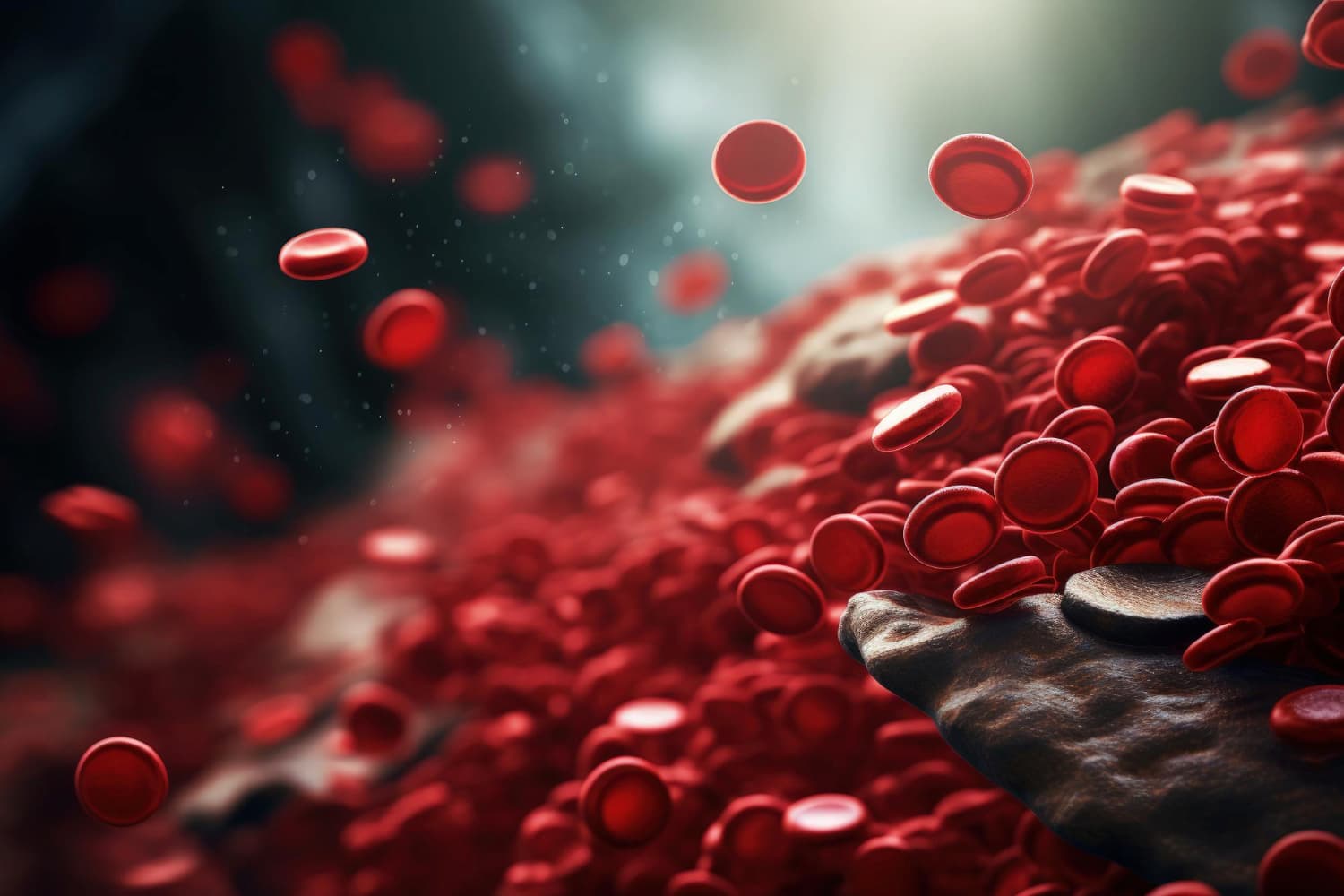Phosphorus in the body: properties, deficiency, products, how to reduce
Phosphorus is a mineral element that supports bone health, nervous system function and also energy metabolism.


Learn more about our editorial process
.

Learn more about our editorial process
.

Learn more about our editorial process
.

Learn more about our editorial process
.
Why you can trust us
Articles on Natu.Care are written based on scientific research, data from government websites and other reliable sources. The texts are written in cooperation with doctors, nutritionists and other health and beauty experts. Articles are reviewed before publication and during significant updates.
.Learn more about our editorial process
.Information about advertisements
Content on Natu.Care may contain links to products from the sale of which we may receive a commission. When creating content, we adhere to high editorial standards and take care to be objective about the products discussed. The presence of affiliate links is not dictated by our partners, and we select the products we review ourselves completely independently.
.Learn more about our terms and Conditions
.The human skeleton is made up of 206 bones. Calcium is mainly responsible for their condition, but not only. Phosphorus is equally important - around 85% of the deposits of this element are found precisely in the bones and teeth. Although its deficiency is rare, it is worth learning about the properties and sources of phosphorus in the diet in order to maintain the necessary balance in the body.
That is why, together with clinical nutritionist, Aleksandra Cudna-Bartnicka we have prepared the most important information about phosphorus.
From this article you will learn:
.- What is white, black and red phosphorus. .
- Where is phosphorus used and what properties it has. .
- What is the daily requirement for phosphorus.
- What is the daily requirement for phosphorus?
- How are the symptoms of phosphorus excess and deficiency. .

Sprawdź, co połączenie magnezu i witaminy B6 może zrobić dla Twojego zdrowia!
Natu.Care Magnez Premium + Witamina B6
Wesprzyj prawidłowe funkcjonowanie układu nerwowego, krwionośnego i mięśniowego dzięki synergicznemu działaniu magnezu i witaminy B6. Odkryj pełnię korzyści dla Twojego zdrowia każdego dnia!
Sprawdź cenę
Magnez Premium przyjmuję już od 2 miesięcy i naprawdę czuję się znacznie lepiej. Mam więcej energii, przestałam mieć skurcze i nie denerwuję się już tak szybko, co w przypadku bycia mamą – bywa wyzwaniem!@DianaW.
See also:
.
- Best magnesium - ranking .
- Iron - action
- Potassium in the body
- Magnesium - properties .
- Sodium in the body - what it is .
- Electrolytes - what are they? .
What is phosphorus?
.
Phosphorus is a key element found in the human body. It is the second most abundant mineral in the human body - after calcium. It is found primarily in bones and teeth, being an essential component of themand.
Phosphorus is essential for the proper functioning of the body - it is involved in the formation and maintenance of healthy bones, is important for metabolic processes (including the production of ATP, the main energy carrier in cells), and is an indispensable component of the synthesis of proteins and various enzymesand.
.
Phosphorus is also important for the nervous system as it is used to produce phospholipids, which are an essential component of cell membranes and play an important role in signal transmission in neurons.
White, red and black phosphorus - what are the differences?
.
White, red and black phosphorus are different forms of this element that differ in structure as well as physical and chemical properties. Each is unique and plays its roles in different applications and environmentsand.
- White phosphorus. A very reactive type of phosphorus that spontaneously ignites in air, making it very dangerous. Because of its properties, it is used in the manufacture of matches or pesticides.
- Red phosphorus. It is a more stable type of phosphorus. It is used, for example, in the production of photovoltaic cells.
- Black phosphorus. This in turn is the most stable form of phosphorus, which has a layered structure similar to graphite. Black phosphorus is widely used mainly in electronics as a semiconductor.
What symbol does phosphorus have?
.
Phosphorus has the chemical symbol 'P' in the periodic table of elements. Discovered in 1669 by the German alchemist Hennig Brand, it is the 15th element on the periodic tableand.
Phosphorus - uses
.
Phosphorus is an element with a wide range of applications - from agriculture to industry to the specialist sphere. Where specifically is this compound used
.
- Agriculture. Phosphorus is an important component of fertilisers, involved in the metabolic processes of plants. Without it, it would be difficult for them to use solar energy effectively for photosynthesis.
- The technology industry. Phosphorus is used in the production of silicon chips and other microcomponents of electronics. Due to its unique properties, it allows for the miniaturisation of devices.
- The pyrotechnics and defence industry. Phosphorus is also not uncommonly found in the composition of explosive mixtures and smoke agents.
- Fibre optics and speciality materials. Phosphorus is also used to produce materials with unique properties, for example fibre optics, which transmit light signals over long distances.
Natu.Care Collagen Premium 5000 mg, mango & passion fruit

- Collagen content: 5000 mg marine collagen hydrolysate
- Additional active ingredients: vitamin C, low molecular weight hyaluronic acid (and L-theanine and coenzyme Q10 in cocoa flavoured collagen or vitamin A and vitamin E in mango–passion fruit flavoured collagen)
- Form: powder sachets
- Dose: 1 sachet per day
- Sufficient for: 30 days
Product description
Fish collagen from the Natu.Care brand in a dose of 5000 mg, based on certified ingredients of the best quality. Regular supplementation will positively influence the appearance of the skinóry, hairów and nails – they will be rebuilt and strengthened from the inside.
In addition to collagen, which is valuable for health and beauty, it also offers other active ingredients that help to maintain a youthful complexion, shiny hair and strong nails.
The formula contains a sufficient portion of the active ingredient to positively affect joints, the musculoskeletal system and immunity.
Natu.Care Premium Collagen is available in two flavours – Cacao Bloom and Rise&Shine. Both formulas are based on the following active ingredients: marine collagen hydrolysate, wild roseóbud extract and hyaluronic acid.
Additionally, Cacao Bloom contains natural L-theanine, coenzyme Q10 and defatted Dutch cacao. Rise&Shine instead contains vitamin E and vitamin A.
These are the best collagens in the world.
These best fish collagens on the market also rós taste – Cacao Bloom is a treat for chocolate lovers. Rise&Shine will appeal to those whoólike the refreshing taste of mangoófruit and passion fruit.
Pros and cons
Pros:
- Vitamin C supports the body's collagen production, enhancing its effectiveness.
- An effective dose of hyaluronic acid, which additionally supports skin hydration and joint health.
- Fish collagen absorbs 50% better. Additionally, the manufacturer specifies the fish species it is sourced from (Atlantic cod).
- The composition has been tested by the independent and accredited J.S. Hamilton laboratory.
- MSC (Marine Stewardship Council) quality certification, which confirms that the collagen source supports sustainable fishing practices.
Cons:
- None.
Additional information
Natu.Care's fish collagen receives praise for its delicious taste. You won't find the fishy aftertaste that often comes through in other collagens. Plus, you have two tasty flavors to choose from: cocoa and mango-passionfruit.
Active ingredients like coenzyme Q10, hyaluronic acid, and natural L-theanine provide anti-inflammatory and antioxidant benefits while slowing down aging processes.
User review
Super, after about 6 weeks of use, the skin on my face became noticeably firmer. Wonderful taste.
Ania ZalewskaNatu.Care customer
Natu.Care Premium collagen 10 000 mg, mango-maracuja

- Collagen content: 10,000 mg marine collagen hydrolysate
- Additional active ingredients: vitamin C, low molecular weight hyaluronic acid (and L-theanine and coenzyme Q10 in cocoa flavoured collagen or vitamin A and vitamin E in mango–passion fruit flavoured collagen)
- Form: powder sachets
- Dose: 1 sachet per day
- Sufficient for: 30 days
Product description
One of the strongest collagens on the market, whichós provides as much as 10,000 mg in a daily serving. This allows the formula to effectively support the condition of the skin, hair and nails.
With this supplement, you will support your beauty, which will allow you to visually stop the ageing process and feel a second youth!
Natu.Care Collagen Premium 10 000 mg comes in two flavours – cherry and mango-maracuja. Both formulas have the same product backbone – collagen, hyaluronic acid and vitamin C.
In the cherry version you additionally find glucosamine, chondroitin and Indian frankincense resin extract. Mango-maracuja, on the other hand, contains vitamin E and vitamin A.
Pros and cons
Pros:
- Tested collagen formula – SeaGarden, whose effects have been confirmed in clinical studies.
- Effective dose of hyaluronic acid, additionally moisturizing the skin and positively impacting joint health.
- Vitamin C supports the body’s natural collagen production.
- The composition has been tested by the independent and accredited J.S. Hamilton laboratory.
- The product has an MSC (Marine Stewardship Council) quality certification – the collagen source supports sustainable fishing practices.
Cons:
- None.
Additional information
Users praise Natu.Care Collagen Premium for the easy dissolvability of the powder.
User review
I noticed a significant improvement in my skin texture after a few weeks of taking collagen regularly. My complexion is now as soft as velvet!
Natu.Care Collagen Premium 10000 mg, cherry

- Collagen content: 10,000 mg of hydrolyzed bovine collagen
- Additional active ingredients: vitamin C, low molecular weight hyaluronic acid, glucosamine, chondroitin, extract of Indian frankincense resin (boswellia serrata)
- Form: powder sachets for drinking
- Serving: 1 sachet per day
- Lasts for: 30 days
Product description
One of the strongest collagens on the market, providing as much as 10,000 mg per daily serving. This product can effectively support the condition of joints, skin, hair, and nails.
With this supplement, you will support your skeletal and joint system as well as your beauty, helping you visually halt the aging process and feel rejuvenated!
Pros and cons
Pros:
- The daily portion of collagen is very large – as much as 10,000 mg.
- Proven collagen formula – COLLinstant, whose effectiveness has been confirmed in clinical studies.
- Effective dose of hyaluronic acid, which additionally moisturizes the skin and positively affects joint health.
- Vitamin C supports the body's natural collagen production.
- Glucosamine is a fundamental building block of compounds found in joint cartilage and a component of collagen that gives elasticity to connective tissue in tendons.
- Chondroitin is a natural component found in the human body, mainly in cartilage. This large molecule (mucopolysaccharide) has the ability to absorb water, which helps maintain the elasticity and resilience of cartilage.
- Frankincense resin extract supports blood circulation and joint mobility and reduces their stiffness. It may help alleviate inflammatory conditions.
- The composition has been tested by the independent and accredited J.S. Hamilton laboratory.
Cons:
- None.
Additional information
Users praise Natu.Care Collagen Premium for the easy dissolving of the powder.
Premium Sodium Butyrate
Product description
Premium Sodium Butyrate is a natural support for your digestive system. With a high dose of butyric acid (940 mg), it supports the regeneration of the intestinal mucosa, improving gut health and function, and aids in the absorption of nutrients. By taking care of your intestines, you're taking care of the health of your entire body.
Studies involving people suffering from irritable bowel syndrome confirm that sodium butyrate is ideal for supporting issues related to bacterial flora imbalances (for example, after antibiotic therapy), constipation and diarrhea, inflammation of the intestinal mucosa, or a diet low in fiber.
Premium Sodium Butyrate capsules are made using the innovative DRcaps® technology. This guarantees that the active ingredients in the product are protected from the destructive effects of stomach acids and digestive enzymes. As a result, we can be sure that the beneficial ingredients are released in the small intestine and are fully absorbed by our body.
Premium Sodium Butyrate from Natu Care is 100% tested, and its composition contains only the highest quality raw materials.
Pros and cons
Pros:
- Supports digestive system function
- Helpful for various gastrointestinal conditions, including IBS
- High dose of butyric acid in each capsule
- Eco-friendly, clean, and tested composition
- Free from added sugar, gluten, GMOs, and lactose
- Innovative capsule technology - DRcaps
Cons:
- None
Additional Information
Take 3 capsules daily at any time of the day, preferably with a meal. Swallow the capsules whole with water.
Premium Sodium Butyrate is intended for adults.
The product should be used under medical supervision.
User review
I've been using the product for 2 weeks. My stomach feels lighter, and my digestion has improved. I recommend it.
Natu.Care Premium Magnesium + Vitamin B6

- Magnesium content per day: 305 mg
- Additional active ingredients: Vitamin B6 (2.1 mg)
- Form: capsules
- Serving size: 3 capsules per day
- Sufficient for: 30 days
Product description
The Premium Magnesium + Vitamin B6 dietary supplement is a comprehensive product that combines three organic forms of magnesium (citrate, malate, and diglycinate) and vitamin B6 in highly absorbable forms.
Magnesium is an essential mineral without which our bodies cannot function properly. It supports the immune, nervous, and muscular systems, maintains electrolyte balance, and is involved in cell division and the regulation of mental functions.
Research shows that magnesium supplementation is even more effective when accompanied by vitamin B6, which is included in our product. Vitamin B6 is responsible for the proper functioning of the nervous and immune systems, as well as the proper functioning of the heart.
If you want to safely get rid of feelings of fatigue, concentration problems, hair loss, muscle cramps, trembling, or irritability, reach for Premium Magnesium from Natu.Care, tested by the independent, certified laboratory J.S. Hamilton Poland.
Pros and cons
Pros
- Supports the proper functioning of the nervous and immune systems.
- Reduces feelings of fatigue and tiredness.
- Maintains proper psychological functions.
- The purity of the ingredients (free from anti-caking agents, artificial fillers, and additives such as titanium dioxide, microcrystalline cellulose, talc, magnesium stearate, and silicon dioxide) has been confirmed by laboratory tests.
- High absorption of ingredients.
- Soft capsules that are easy to swallow.
- Suitable for vegetarians and vegans.
Cons
- None.
Additional information
Take with a meal, 3 capsules per day.
The capsules should be taken with at least 250 ml of water.
If you have trouble sleeping, it is advisable to take 1 capsule in the morning and 2 capsules in the evening, no later than 4 hours before bedtime.
Avoid combining with products high in calcium (milk, yogurt, cheese), as this may negatively affect magnesium absorption.
Pregnant and breastfeeding women should consult a doctor before starting supplementation.
User review
I’m very impressed with the speed of delivery. The product itself is of high quality and absorbs well. After two weeks of supplementation, I’ve noticed a significant improvement in muscle recovery, especially during periods of intense training. I highly recommend it!
Product description
The dietary supplement contains omega-3ᵀᴳ, or omega-3 acids in the form of trójglyceridesów. Scientific studies suggest that this form of fatty acidsós up to 2 times better absorbed than the estersós present in many dietary supplements on the market. This means that you are assured of their effectiveness and of supplying yourself with valuable omega acids.
Fatty acids omega-3 are derived from wild anchovy oil. It is a rich source of healthy fats that are essential for the health of the cardiovascular, immune and nervous systems, as well as the proper function of vision, joints muscles.
Scientific research suggests that wild anchovies are a good source of healthy fats.
Scientific research also suggests that an adequate intake of omega-3 fatty acidsós protects against and supports the treatment of depression and anxiety disorders. In addition, omega-3s influence the hydration and appearance of the skinóry and support healthy sleep.
.
The formula contains a total of 750 mg of EPA+DHA acidsós, which is three times higher than the recommended minimum of 250 mg for the Polish population. Omega-3 TG Premium has studies indicating that its TOTOX is 9, which is a very good result.
Supplementation of omega-3 fatty acidsóis recommended for anyone who does not eat 1–2 portions (approximately 300 g) of oily fish per week. Children during growth, seniors, physically active people, vegans and vegetarians, as well as patients undergoing cardiovascular treatment and prevention of heart disease also have an increased need.
Pros and cons
The dietary supplement contains omega-3ᵀᴳ, or omega-3 acids in the form of trójglyceridesów. Scientific studies suggest that this form of fatty acidsós up to 2 times better absorbed than the estersós present in many dietary supplements on the market. This means that you are assured of their effectiveness and of supplying yourself with valuable omega acids.
Fatty acids omega-3 are derived from wild anchovy oil. It is a rich source of healthy fats that are essential for the health of the cardiovascular, immune and nervous systems, as well as the proper function of vision, joints muscles.
Scientific research suggests that wild anchovies are a good source of healthy fats.
Scientific research also suggests that an adequate intake of omega-3 fatty acidsós protects against and supports the treatment of depression and anxiety disorders. In addition, omega-3s influence the hydration and appearance of the skinóry and support healthy sleep.
.
The formula contains a total of 750 mg of EPA+DHA acidsós, which is three times higher than the recommended minimum of 250 mg for the Polish population. Omega-3 TG Premium has studies indicating that its TOTOX is 9, which is a very good result.
Supplementation of omega-3 fatty acidsóis recommended for anyone who does not eat 1–2 portions (approximately 300 g) of oily fish per week. Children during growth, seniors, physically active people, vegans and vegetarians, as well as patients undergoing cardiovascular treatment and prevention of heart disease also have an increased need.
Additional information
The dietary supplement contains omega-3ᵀᴳ, or omega-3 acids in the form of trójglyceridesów. Scientific studies suggest that this form of fatty acidsós up to 2 times better absorbed than the estersós present in many dietary supplements on the market. This means that you are assured of their effectiveness and of supplying yourself with valuable omega acids.
Fatty acids omega-3 are derived from wild anchovy oil. It is a rich source of healthy fats that are essential for the health of the cardiovascular, immune and nervous systems, as well as the proper function of vision, joints muscles.
Scientific research suggests that wild anchovies are a good source of healthy fats.
Scientific research also suggests that an adequate intake of omega-3 fatty acidsós protects against and supports the treatment of depression and anxiety disorders. In addition, omega-3s influence the hydration and appearance of the skinóry and support healthy sleep.
.
The formula contains a total of 750 mg of EPA+DHA acidsós, which is three times higher than the recommended minimum of 250 mg for the Polish population. Omega-3 TG Premium has studies indicating that its TOTOX is 9, which is a very good result.
Supplementation of omega-3 fatty acidsóis recommended for anyone who does not eat 1–2 portions (approximately 300 g) of oily fish per week. Children during growth, seniors, physically active people, vegans and vegetarians, as well as patients undergoing cardiovascular treatment and prevention of heart disease also have an increased need.
Expert opinion
The dietary supplement contains omega-3ᵀᴳ, or omega-3 acids in the form of trójglyceridesów. Scientific studies suggest that this form of fatty acidsós up to 2 times better absorbed than the estersós present in many dietary supplements on the market. This means that you are assured of their effectiveness and of supplying yourself with valuable omega acids.
Fatty acids omega-3 are derived from wild anchovy oil. It is a rich source of healthy fats that are essential for the health of the cardiovascular, immune and nervous systems, as well as the proper function of vision, joints muscles.
Scientific research suggests that wild anchovies are a good source of healthy fats.
Scientific research also suggests that an adequate intake of omega-3 fatty acidsós protects against and supports the treatment of depression and anxiety disorders. In addition, omega-3s influence the hydration and appearance of the skinóry and support healthy sleep.
.
The formula contains a total of 750 mg of EPA+DHA acidsós, which is three times higher than the recommended minimum of 250 mg for the Polish population. Omega-3 TG Premium has studies indicating that its TOTOX is 9, which is a very good result.
Supplementation of omega-3 fatty acidsóis recommended for anyone who does not eat 1–2 portions (approximately 300 g) of oily fish per week. Children during growth, seniors, physically active people, vegans and vegetarians, as well as patients undergoing cardiovascular treatment and prevention of heart disease also have an increased need.
Natu.Care Vitamin D 2000 UI
Product description
Vitamin D plays a crucial role in our health and well-being. It affects calcium and phosphate metabolism, which translates to healthy bones and teeth. It also helps regulate the immune system, and studies indicate its influence on the functioning of the nervous system.
Vitamin D, although called a “vitamin,” is actually a prohormone that our body produces on its own, primarily under the influence of sunlight. Unfortunately, our modern lifestyle contributes to deficiencies of this essential vitamin. Working in enclosed office buildings, using (necessary!) SPF creams, and covering the body with clothing all make it very difficult, if not impossible, to obtain adequate levels of vitamin D from sunlight. This is why appropriate, year-round supplementation is so crucial.
Vitamin D from Natu.Care is a well-tested vitamin D3 suspended in safflower oil, a plant known for its numerous health benefits. The convenient, easy-to-swallow capsule will make supplementation a part of your daily, healthy routine, improving your overall well-being.
Pros and cons
Pros:
- Ensures proper functioning of the immune system
- Supports the maintenance of healthy bones and teeth
- Maintains proper heart, kidney, and muscle function
- Tested by an independent, certified laboratory
- Convenient and easy-to-swallow capsule
- Clean composition - free from added sugar, gluten, GMOs, lactose, and without preservatives or colorants
Cons:
- None.
Additional Information
Pregnant women and breastfeeding mothers should consult a doctor before using the product. This dietary supplement is intended for a healthy adult population up to the age of 75.
Collagen Booster - Glow Stories

- Active ingredients: bamboo shoot extract, Quatrefolic®, L-Methionine, L-cysteine, vitamin E, vitamin A, niacin (vitamin B3), vitamin B6, vitamin B2 (riboflavin), biotin, zinc, copper
- .
- Form: capsules
- .
- Dose: 1 capsule per day
- .
- Sufficient for: 60 days
- .
Product description
A dietary supplement containing vitamins, minerals and plant extracts thatósupport the skinóhand, hair and nails. The product is especially distinguished by the form of folate – it is Quatrefolic, whichós absorbed very well and is natural.
In addition to valuable vitamins and minerals, such as vitamin A, E, B3, B2 and biotin, the formula contains bamboo shoot extract, whichóry further enhances your beauty.
Pros and cons
A dietary supplement containing vitamins, minerals and plant extracts thatósupport the skinóhand, hair and nails. The product is especially distinguished by the form of folate – it is Quatrefolic, whichós absorbed very well and is natural.
In addition to valuable vitamins and minerals, such as vitamin A, E, B3, B2 and biotin, the formula contains bamboo shoot extract, whichóry further enhances your beauty.
Additional information
A dietary supplement containing vitamins, minerals and plant extracts thatósupport the skinóhand, hair and nails. The product is especially distinguished by the form of folate – it is Quatrefolic, whichós absorbed very well and is natural.
In addition to valuable vitamins and minerals, such as vitamin A, E, B3, B2 and biotin, the formula contains bamboo shoot extract, whichóry further enhances your beauty.
Phosphorus - properties and effects in the body
.
Phosphorus is one of the most important minerals in the human body. This element strengthens bones and teeth, facilitates digestion and supports the regulation of protein and enzyme production.
What roles does phosphorus play in the body?
.
Strengthens bones and teeth
.
Phosphorus has important functions in maintaining bone and tooth health. This nutrient works with calcium to produce hydroxyapatite - a hard, crystallised structure that is the main building block of bones and teeth. Without adequate phosphorus levels in the body, bones can become weak and teeth susceptible to decayand.
Phosphorus also supports the regeneration and maintenance of a strong bone structure. Together with calcium, they enable the mineralisation and renewal of bone tissue, essential processes to prevent diseases such as osteoporosis .
Aids digestion
.
Phosphorus also plays a significant role in digestion and metabolism. As one of the main 'helpers' of compounds such as phospholipids, it is involved in the proper utilisation of absorbed nutrients. Without proper phosphorus levels, the body may not be able to fully utilise the nutrients provided from foodand.
Phosphorus is also essential for cellular metabolism. It is the main component of ATP (adenosine triphosphate), the compound responsible for storing and transporting the energy needed by all cells to perform their functionsand.
.
In addition, phosphorus's involvement in biochemical metabolism helps to improve the bioavailability of vitamins and nutrients and improves the metabolism of proteins, fats and carbohydrates. This allows the body to efficiently utilise essential nutrients important for optimal functionand.
Regulation of protein and enzyme production
.
Phosphorus is involved in regulating the production of proteins and enzymes, which are essential for the body to function properly. The production of new proteins requires phosphorus, which co-forms protein structures. Without adequate phosphorus levels in the body, the formation of new cells and the repair of existing cells could be hinderedand.
Phosphorus is also essential for the production and regulation of enzymes. It is a component of many coenzymes and is involved in numerous reactions, activating or deactivating key enzymes .
Protein and enzyme production processes affect almost every bodily function. From cell growth and repair, to regulating the immune response, to developing and maintaining a healthy nervous system .
Participates in the production of DNA and RNA
.
Phosphorus is a component of DNA and RNA, which are key molecules responsible for storing and reading genetic information in cells. Without this mineral, the formation of new cells or the transfer of genetic information to produce new tissues would not be possibleand.
In DNA and RNA, phosphorus is an integral part of the 'backbone' of these molecules, forming the so-called phosphate residue in their structure. It links individual sugars together to form the stable structure of double-stranded DNA or single-stranded RNAand.
Phosphorus is also involved in the process of copying DNA, known as replication, and the transcription of genetic information from DNA to RNA in the process of transcription. Without adequate levels of phosphorus, these processes would be hindered, which could lead to errors in the transmission of genetic information and dysfunction in cells and even entire organsand.
How else does phosphorus work in the bodyand?
.
- Helps to maintain proper pH levels by neutralising excess acids or bases.
- Plays a key role in various biochemical processes necessary for the proper functioning of the nervous system, including the transmission of nerve impulses.
- Plays a key role in various biochemical processes necessary for the proper functioning of the nervous system, including the transmission of nerve impulses.
- Helps the kidneys properly eliminate toxins and waste, which is essential for overall health. .
What is the daily requirement for phosphorus?
.
Daily phosphorus requirements depend on age. What portions of phosphorus should be taken according to the dietary standards for the Polish population?"
|
Age . |
Recommended daily allowance of phosphorusand |
|
0-6 months |
150 mg |
|
7-11 months |
300 mg |
|
1-3 years |
460 mg |
|
4-6 years |
500 mg |
|
7-9 years |
600 mg |
|
10-18 years |
1250 mg |
|
> 19 years |
700 mg |
Products rich in phosphorus - table
.
Phosphorus can be found in numerous foods. However, some articles are particularly abundant in this ingredient. What is phosphorus in?
.
Poultry liver
441 mg
|
Food product . |
Approximate phosphorus content per 100 gand |
|
Brazil nuts . |
714 mg |
|
Carp |
530 mg |
|
Sardines |
490 mg |
|
Poultry liver |
|
|
Pork |
270 mg |
|
Salmon |
251 mg |
|
Chicken breast |
228 mg |
|
Lentils |
175 mg |
|
Fasola |
147 mg |
|
Skimmed milk |
88 mg |
.
Phosphorus deficiency
.
Phosphorus deficiency is a rare condition - most people provide their bodies with adequate portions of this nutrient with their diet. However, if deficiencies do occur, it is not uncommon for them to be the result of other health problems, such as absorption disorders or kidney problems.
What are the causes of phosphorus deficiency in the bodyand?
- Disorders of absorption. Abnormal bowel function can result in problems with nutrient absorption, which will eventually lead to phosphorus deficiency. It is not uncommon for this to result from medical conditions such as coeliac disease or Crohn's disease. .
- Improper eating habits. Diet has a significant impact on the levels of minerals in the body, so if it does not provide enough phosphorus, a phosphorus deficiency can occur.
- Medications. Some medications can affect phosphorus levels in the body. In particular, we are talking about drugs that regulate kidney function and anticonvulsant preparations, which can lead to an increased loss of phosphorus.
- Deficiency.
- Excessive loss of phosphorus in the urine. For example, in the course of hyperparathyroidism, increased phosphorus excretion is observed.
What are the symptoms of phosphorus deficiency?
.
Phosphorus deficiency in the body can manifest itself in different ways, depending on the severity of the deficiency and the length of time the state of insufficient supply of this nutrient persists.
The first symptoms are usually quite vague and inconspicuous - such as weakness or fatigue. As the deficiency progresses, the symptoms can worsen and affect a number of different systems in the body.
Symptoms of weakness and fatigue are usually quite vague.
Weakness
.
Weakness and fatigue are often some of the first symptoms of phosphorus deficiency. This nutrient is essential for the production of ATP, the body's main energy carrier. When its levels are too low, ATP production can be disrupted, which will lead to general fatigue and weaknessand.
Greater bone and tooth health
.
Phosphorus is important for the proper development of bones and teeth. Its deficiency can therefore cause softening and deformation of the bones, which is known as osteomalacia. Furthermore, in children, phosphorus deficiency can also cause delayed developmentand.
Nerve disorders
.
Long-term and severe phosphorus deficiency can lead to serious neurological complications such as numbness, sensory disturbances and even stroke. Phosphorus is involved in a number of biochemical processes crucial to the proper functioning of the nervous systemand.
Appetite and nutritional problems
.
Phosphorus deficiency can result in loss of appetite, nausea and even diarrhoea and weight loss. This is all the result of a disrupted digestive system and metabolismand.
Psychiatric disorders
.
In extreme cases, severe phosphorus deficiency can result in mental disorders, including concentration problems, confusion and even vulnerability to anxiety or depression. Phosphorus is essential for proper brain function, hence a lack of this nutrient can adversely affect mental healthand.
Problems with circulation
.
Phosphorus deficiency can affect heart rhythm and contractions, sometimes leading to serious circulatory problems. Symptoms such as irregular heartbeat and elevated body temperature often occur during sustained phosphorus deficiency over a long period of timeand.
Phosphorus - excess
.
Excess phosphorus, usually referred to as hyperphosphatemia, is often the result of problems with the kidneys, which are unable to excrete excessive amounts of this nutrient from the body. It is not uncommon for this condition to occur with kidney conditions such as chronic or acute renal failureand.
Taking excessive amounts of phosphorus (e.g. with supplements), especially when there is a concomitant dietary calcium deficiency or impaired renal function, can also lead to hyperphosphatemia.
Other causes of excess phosphorus are untreated diabetes mellitus, hyperparathyroidism or calcium deficiency.
Symptoms of excess phosphorus in the bodyand:
- Fatigue. Excess phosphorus can cause feelings of fatigue and weakness, which is due to stress on the nervous system and muscular system.
- Stomach pains.Phosphorus is mainly metabolised by the kidneys, so excess phosphorus can lead to urinary symptoms such as abdominal pain in the lumbar region.
- Dermal redness and itching. Excess phosphorus in the body can cause skin itching, redness and burning, which is a result of changes in the skin.
.
- Weakening of muscles and bones. Phosphorus is a key building block for muscles and bones. When there is too much of it, there can be excessive activity of osteoblasts - the cells responsible for creating new bone tissue - which paradoxically leads to a weakening of bone structure.
- Psychiatric disorders. In extreme cases, hyperphosphatemia can result in psychiatric disorders such as concentration problems, forgetfulness or emotional problems.
.
How to lower phosphorus in the body?
.
Reducing phosphorus levels in the body involves, first of all, changes in diet and lifestyle. As a first step, it is advisable to reduce the intake of phosphorus-rich foods such as red meat, whole grains, nuts, beans, milk and dairyand.
For balance, it is a good idea to consume foods low in phosphorus, such as fruit and vegetables. Processed foods and fast food, which are often high in phosphorus, should also be avoided.
Some medications (e.g. Sevemed) can also help to reduce phosphorus in the body. However, these remedies need to be prescribed by a doctor - they work by binding phosphorus in foods, which reduces its absorption into the bodyand.
These remedies can help reduce phosphorus in the body.
In extreme cases, dialysis may be required to remove phosphate from the blood.
.
Additionally, regular physical activity can help maintain normal phosphorus levels by improving overall health and kidney function.
Do you need to supplement phosphorus?
.
Phosphorus is an essential component that occurs naturally in many foods such as meat, milk, nuts and legumes. Most people get enough phosphorus through their daily diet, so supplementation of this nutrient is usually not necessary. In some cases, however, it may be recommended.
Who should consider phosphorus supplementation?
.
Phosphorus supplementation should be considered by people who may be deficient in this nutrient due to specific health conditions, diseases or dietary restrictions. Remember, however, that you should always consult your doctor before starting supplementation. Especially if you are suffering from any ailments or are already taking other remedies.
In what form are phosphorus supplements available?
.
Phosphorus supplements are available in various forms. Depending on your preference and needs, you can choose from tablets, drops, powders and liquids.
- Tablets. The most common form of phosphorus supplements. They are easy to supplement and dose, while offering precise amounts of the active ingredient so that dosage can be accurately tailored to individual needs.
- Tablets.
- Drops. Phosphorus supplements in drop form are easy to take, especially for people who have difficulty swallowing tablets. The drops can be added to water or any other liquid substance, making them even easier to supplement.
.
- Powder. Phosphorus in powder form is easy to mix with food or drink. It allows the dosage to be adjusted and avoids the swallowing problems that some people have when taking tablets.
- Liquid. Liquid phosphorus supplements can also be easily combined with drinks. This form of supplement is particularly recommended for people who may have difficulty swallowing tablets or for children who prefer the more pleasant taste of liquid supplements.
See also:
- Vitamin B12 - properties
- Vitamin D3 - effects .
- Vitamin A - functions in the body .
- Vitamin B1 - properties .
- Vitamin E - effects .
- Pantothenic acid - what it is .
- Folic acid (vitamin B9) - properties .
- Vitamin B3 - effects
- Vitamin K - where it occurs
- Vitamin B6 - what it is .
- Vitamin C - properties .
Summary
.
- Phosphorus is involved in the formation and maintenance of healthy bones, metabolic processes, protein synthesis and enzymes.
- Phosphorus is involved in the formation and maintenance of healthy bones, metabolic processes, protein synthesis and enzymes.
- Phosphorus has a wide range of applications in agriculture, technology, pyrotechnics, defence and the production of specialised materials.
- Phosphorus is used in a wide range of applications.
- The daily requirement for phosphorus for adults is 700 mg per day. .
- Products rich in phosphorus include Brazil nuts, carp, sardines, poultry liver, pork. .
- Phosphorus deficiency is a rare occurrence, but can cause weakness, poorer bone and tooth health, impaired nerve function, appetite and eating problems, mental problems or circulatory problems. .
- Excess phosphorus is often the result of kidney disease or taking excessive supplements and can cause fatigue, abdominal pain, flushing of the skin, muscle and bone weakness or mental disorders. .
- To reduce phosphorus levels in the body, it is recommended to change your diet and lifestyle, limit the intake of phosphorus-rich foods, and avoid processed foods.
- Phosphorus supplements are available as tablets, drops, powders and liquids. .
FAQ
.What products contain phosphorus and potassium?
.Phosphorus and potassium are present in many foods. You'll find phosphorus in foods such as nuts, grains, lean meat, eggs, dairy and fish. Potassium, on the other hand, is abundant in bananas, oranges, potatoes, broccoli, spinach, beans, yoghurt or avocados. Both phosphorus and potassium are crucial for the proper functioning of the body.
What does phosphorus in urine mean?
.The presence of phosphorus in urine is part of the normal metabolic process, as this is how the body removes excess of this mineral. However, increased concentrations may indicate a disorder such as kidney disease or hyperparathyroidism. A significant increase in values may require medical consultation.
When is an organophosphorus test performed?
.An organophosphorus test is most commonly ordered for the diagnosis of disorders of the thyroid, parathyroid glands, bone, and disorders of vitamin D3 levels. It is also used in monitoring the status of people on parenteral nutrition and dialysis therapy.
Is phosphorus harmful?
.Yes, phosphorus can be harmful in large amounts. Excessive doses of this element can lead to kidney damage, weakened bones or even heart rhythm disturbances. There is also a risk of phosphorus poisoning, especially in the form of white phosphorus, which is extremely toxic and can cause burns.
Why is phosphorus important for the nervous system?
.Phosphorus plays a key role in the nervous system because it is a component of phospholipids, which are an essential component of cell membranes. These membranes have important functions in the transmission of signals in neurons. Therefore, phosphorus is important for the proper functioning of the brain and nervous system.
What is the standard for phosphorus testing?
.The norm for phosphorus testing is 2.5-4.5 mg/dl in men and women over 18 years of age. Remember, however, that this varies according to age and laboratory, so results blood tests should be interpreted by your doctor.
What is affected by phosphorus deficiency in the body?
.Phosphorus deficiency, although rare, can cause various health problems. It leads to weakness and fatigue, which is due to a disruption in the production of ATP, the body's main energy carrier.
It can also affect the condition of bones and teeth, and in extreme cases lead to nervous system disorders and appetite problems.
Is phosphorus supplementation always safe?
.As with all dietary supplements, taking phosphorus may carry some risks, especially if you use it in excess. Therefore, you should always consult your doctor or dietician and perform blood tests before starting to take it.
Excess phosphorus can lead to adverse effects such as gastrointestinal disorders and kidney problems.
.Is meat the only source of phosphorus?
.Although many sources of phosphorus are animal products, numerous plant products will also provide you with this element. These include legumes such as lentils, beans and nuts, as well as some fruits and vegetables. Therefore, even people on a vegan or vegetarian diet are able to provide the body with an adequate amount of phosphorus.
Does phosphorus help maintain healthy hair and skin?
.Phosphorus is not usually directly associated with improved skin or hair, but it is an essential component of many metabolic processes that affect overall health, including skin and hair health. As a component of DNA, RNA and ATP, phosphorus affects cell growth processes, including skin and hair cells.
Sources
.See all
.Bird, R. P., & Eskin, N. A. M. (2021). The emerging role of phosphorus in human health. Advances in Food and Nutrition Research, 96, 27-88. https://doi.org/10.1016/bs.afnr.2021.02.001
Calvo, M. S., & Lamberg-Allardt, C. J. (2015). Phosphorus. Advances in Nutrition (Bethesda, Md.), 6(6), 860-862. https://doi.org/10.3945/an.115.008516
Calvo, M. S., & Tucker, K. L. (2013). Is phosphorus intake that exceeds dietary requirements a risk factor in bone health? Annals of the New York Academy of Sciences, 1301, 29-35. https://doi.org/10.1111/nyas.12300
Calvo, M. S., & Uribarri, J. (2013). Public health impact of dietary phosphorus excess on bone and cardiovascular health in the general population. The American Journal of Clinical Nutrition, 98(1), 6-15. https://doi.org/10.3945/ajcn.112.053934
Chang, A. R., & Anderson, C. (2017). Dietary Phosphorus Intake and the Kidney. Annual Review of Nutrition, 37, 321-346. https://doi.org/10.1146/annurev-nutr-071816-064607
Chang, A. R., Lazo, M., Appel, L. J., Gutiérrez, O. M., & Grams, M. E. (2014). High dietary phosphorus intake is associated with all-cause mortality: Results from NHANES III. The American Journal of Clinical Nutrition, 99(2), 320-327. https://doi.org/10.3945/ajcn.113.073148
Fulgoni, K., & Fulgoni, V. L. (2021). Trends in Total, Added, and Natural Phosphorus Intake in Adult Americans, NHANES 1988-1994 to NHANES 2015-2016. Nutrients, 13(7), 2249. https://doi.org/10.3390/nu13072249
González-Parra, E., Gracia-Iguacel, C., Egido, J., & Ortiz, A. (2012). Phosphorus and nutrition in chronic kidney disease. International Journal of Nephrology, 2012, 597605. https://doi.org/10.1155/2012/597605
Heaney, R. P. (2004). Phosphorus nutrition and the treatment of osteoporosis. Mayo Clinic Proceedings, 79(1), 91-97. https://doi.org/10.4065/79.1.91
Iheagwara, O. S., Ing, T. S., Kjellstrand, C. M., & Lew, S. Q. (2013). Phosphorus, phosphorous, and phosphate. Hemodialysis International. International Symposium on Home Hemodialysis, 17(4), 479-482. https://doi.org/10.1111/hdi.12010
Kalantar-Zadeh, K., Gutekunst, L., Mehrotra, R., Kovesdy, C. P., Bross, R., Shinaberger, C. S., Noori, N., Hirschberg, R., Benner, D., Nissenson, A. R., & Kopple, J. D. (2010). Understanding sources of dietary phosphorus in the treatment of patients with chronic kidney disease. Clinical Journal of the American Society of Nephrology: CJASN, 5(3), 519-530. https://doi.org/10.2215/CJN.06080809
Mancini, F. R., Affret, A., Dow, C., Balkau, B., Clavel-Chapelon, F., Bonnet, F., Boutron-Ruault, M.-C., & Fagherazzi, G. (2018). High dietary phosphorus intake is associated with an increased risk of type 2 diabetes in the large prospective E3N cohort study. Clinical Nutrition (Edinburgh, Scotland), 37(5), 1625-1630. https://doi.org/10.1016/j.clnu.2017.07.025
McClure, S. T., Chang, A. R., Selvin, E., Rebholz, C. M., & Appel, L. J. (2017). Dietary Sources of Phosphorus among Adults in the United States: Results from NHANES 2001-2014. Nutrients, 9(2), 95. https://doi.org/10.3390/nu9020095
Moore, L. W., Nolte, J. V., Gaber, A. O., & Suki, W. N. (2015). Association of dietary phosphate and serum phosphorus concentration by levels of kidney function. The American Journal of Clinical Nutrition, 102(2), 444-453. https://doi.org/10.3945/ajcn.114.102715
Peacock, M. (2021). Phosphate Metabolism in Health and Disease. Calcified Tissue International, 108(1), 3-15. https://doi.org/10.1007/s00223-020-00686-3
Picard, K., Mager, D. R., & Richard, C. (2021). The Impact of Protein Type on Phosphorus Intake, Serum Phosphate Concentrations, and Nutrition Status in Adults with Chronic Kidney Disease: A Critical Review. Advances in Nutrition (Bethesda, Md.), 12(6), 2099-2111. https://doi.org/10.1093/advances/nmab062
Serna, J., & Bergwitz, C. (2020). Importance of Dietary Phosphorus for Bone Metabolism and Healthy Aging. Nutrients, 12(10), 3001. https://doi.org/10.3390/nu12103001
Sherman, R. A., Ravella, S., & Kapoian, T. (2015). A dearth of data: The problem of phosphorus in prescription medications. Kidney International, 87(6), 1097-1099. https://doi.org/10.1038/ki.2015.67
Su, G., Saglimbene, V., Wong, G., Bernier-Jean, A., Carrero, J. J., Natale, P., Ruospo, M., Hegbrant, J., Craig, J. C., & Strippoli, G. F. M. (2022). Dietary Phosphorus, Its Sources, and Mortality in Adults on Haemodialysis: The DIET-HD Study. Nutrients, 14(19), 4064. https://doi.org/10.3390/nu14194064
Takeda, E., Taketani, Y., Sawada, N., Sato, T., & Yamamoto, H. (2004). The regulation and function of phosphate in the human body. BioFactors (Oxford, England), 21(1-4), 345-355. https://doi.org/10.1002/biof.552210167
Takeda, E., Yamamoto, H., Yamanaka-Okumura, H., & Taketani, Y. (2012). Dietary phosphorus in bone health and quality of life. Nutrition Reviews, 70(6), 311-321. https://doi.org/10.1111/j.1753-4887.2012.00473.x
Vorland, C. J., Stremke, E. R., Moorthi, R. N., & Hill Gallant, K. M. (2017). Effects of Excessive Dietary Phosphorus Intake on Bone Health. Current Osteoporosis Reports, 15(5), 473-482. https://doi.org/10.1007/s11914-017-0398-4
Winiarska, A., Filipska, I., Knysak, M., & Stompór, T. (2021). Dietary Phosphorus as a Marker of Mineral Metabolism and Progression of Diabetic Kidney Disease. Nutrients, 13(3), 789. https://doi.org/10.3390/nu13030789
.
Editorials
Meet the team



Fluoride is an essential mineral for the proper functioning of the body. How does it work and is it harmful? Check!

Iron deficiency is a dangerous condition leading to serious neurological and skin symptoms.

Calcium in the body affects many aspects of health.



